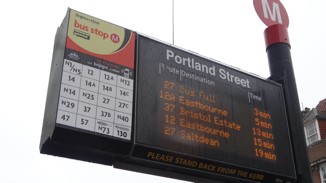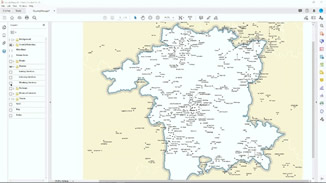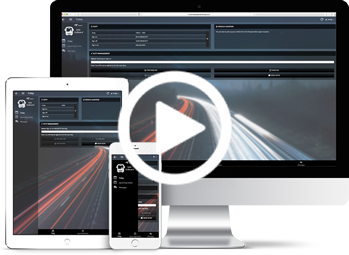Restoring Confidence in Bus Services: 4 Tools to Help
As services begin to resume and life starts to look a little more like ‘normal’, restoring passenger confidence will be one of the greatest challenges for local authorities and bus operators.
Digital alerts are already being used to warn UK rail passengers of busy trains and stations in order to avoid crowding and reassure passengers. Similarly, in order to return to buses, passengers will need to be confident that their vehicle is running as expected, clean, and has sufficient capacity to ensure they can observe the current advised level of social distancing.
Providing these kinds of assurances is vital for transport providers and also the environment: improvements in air quality, reductions in CO2 emissions, and notably lower congestion levels have been clear positives to emerge from the COVID-19 pandemic. We cannot allow them to be instantly undone by a sudden increase in the use of private cars.
So how do we raise confidence in public transport? As ever, information tools will play a central role. Let’s take a look at some of the examples.
 1. Bus Capacity Information
1. Bus Capacity Information
To ensure passenger and driver safety, and observance of social distancing rules, vehicles will be required to operate with reduced passenger loads. Effective utilisation will ensure that vehicles are utilised to the maximum within the present safety load.
To facilitate this, buses can use load information (taken from an Automated Passenger Counting System or driver input), compare it the current social distancing-conforming level, and then communicate this information out to the public in the form of “seats available” or “bus full” messages on at-stop signs and mobile apps or journey planners. Some bus operators are already making this data available so Local Authorities are able to take advantage here and now.
 2. Network Visualisation
2. Network Visualisation
COVID-19 has thrown bus networks up in the air. In many instances, as services resume, they will do so in order to meet very different travel behaviour patterns.
As operators and authorities adjust services and service information in line with these changes, network visualisation tools can help with network planning – identifying gaps in services, and analysing access to key destinations such as healthcare. Passenger facing versions of the same information gives passengers a quick graphical reference of routes available and assure them of their ability to reach their destination.
3. Business Intelligence and RTPI Performance Monitoring
During this period it is vital that information matches the services being delivered in order to ensure streamlined passenger trips that reduce crowding at bus stops and stations. At a time where road usage levels are constantly changing, this can only be managed with access to data.
By utilising Trapeze’s real-time passenger information (RTPI) business intelligence and performance monitoring tools, you can compare schedules with actual vehicle movements, and then tweak timetables to accurately reflect the ‘on the road’ reality – thereby ensuring safer and more efficient travel for everyone.
4. Data Management Services
While it is hoped that we are now moving into Covid-19 recovery, there may well be a requirement for continued flexibility in relation to services operated. In order to keep pace with the rate of change, and ensure sustained delivery of accurate information, authorities can benefit from a data management service, whereby Trapeze’s data experts manage the processing of all aspects of bus service data.
This approach, as employed to huge success by Surrey during the Covid-19 outbreak, takes away the data management workload, ensuring accurate information to the public at all times – even during periods of dramatic change.
As we start to recover from COVID-19, restoring confidence in public transport will be one of our greatest challenges. We must adapt to changing demand, and we must use all of the information tools available to ensure people have the information and assurance that they can travel as easily reliably, and safely as they did before. Only then will life begin to return to normal.
Here to help
Contact us and speak with one of our specialists:
+44 (0) 808 281 1039
More Info
About Us | Careers | Contact Us | Legal | Privacy
(c) 1999 – 2020 Trapeze Software ULC. All rights reserved
Trapeze Group respects your privacy

 2. Network Visualisation
2. Network Visualisation